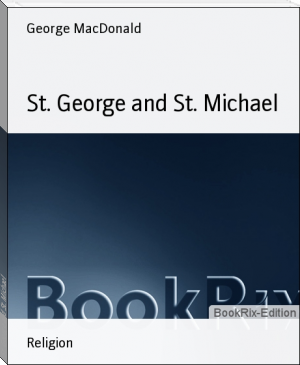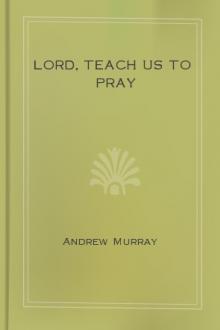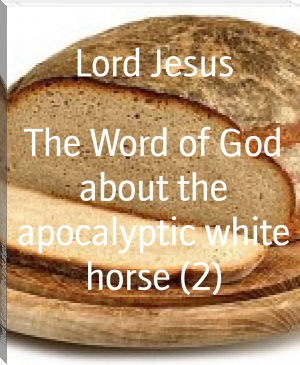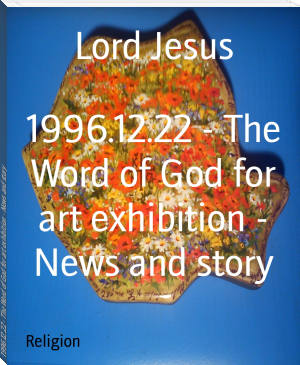St. George and St. Michael - George MacDonald (beach books .txt) 📗

- Author: George MacDonald
Book online «St. George and St. Michael - George MacDonald (beach books .txt) 📗». Author George MacDonald
his Irish doings-as indeed well they might be.
But his confinement was by no means so great a trial to him as his indignant friends supposed; for, long willing to depart, he had at length grown a little tired of life, feeling more and more the oppression of growing years, of gout varied with asthma, and, worst of all to the once active man, of his still increasing corpulence, which last indeed, by his own confession, he found it hard to endure with patience. The journey had been too much for him, and he began to lead the life of an invalid.
There being no sufficient accommodation in the house for his family, they were forced to content themselves with lodging as near him as they could, and in these circumstances Dorothy, notwithstanding lady Glamorgan's entreaties, would have returned home. But the marquis was very unwilling she should leave him, and for his sake she concluded to remain.
'I am not long for this world, Dorothy,' he said. 'Stay with me and see the last of the old man. The wind of death has got inside my tent, and will soon blow it out of sight.'
Lady Glamorgan's intention from the first had been to go to Ireland to her husband as soon as she could get leave. This however she did not obtain until the first of October-five weeks after her arrival in London. She would gladly have carried Dorothy with her, but she would not leave the marquis, who was now failing visibly. As her ladyship's pass included thirty of her servants, Dorothy felt at ease about her personal comforts, and her husband would soon supply all else.
The ladies Elizabeth and Mary were in the same house with their father; lady Anne and lord Charles were in the house of a relative at no great distance, and visited him every day. Sir Toby Mathews also, and Dr. Bayly, had found shelter in the neighbourhood, so that his lordship never lacked company. But he was going to have other company soon.
Gently he sank towards the grave, and as he sank his soul seemed to retire farther within, vanishing on the way to the deeper life. They thought he lost interest in life: it was but that the brightness drew him from the glimmer. Every now and then, however, he would come forth from his inner chamber, and standing in his open door look out upon his friends, and tell them what he had seen.
The winter drew on. But first November came, with its 'saint Martin's summer, halcyon days' and the old man revived a little. He stood one morning and looked from his window on the garden behind the house, all glittering with molten hoar-frost. A few leaves, golden with death, hung here and there on a naked bough. A kind of sigh was in the air. The very light had in it as much of resignation as hope. He had forgotten that Dorothy was in the room.
There was Celtic blood in the marquis, and at times his thoughts took shapes that hardly belonged to the Teuton.
'Cometh my youth hither again?' he murmured. 'As a stranger he cometh whom yet I know so well! Or is it but the face of my old age lighted with a parting smile? Either way, change cometh, and change will be good. Domine, in manus tuas.'
He turned and saw Dorothy.
'Child!' he exclaimed, 'good sooth, I had forgotten thee. Yet I spake no treason. Dorothy, I hold not with them who say that from dust we came and to dust we return. Neither my blessed countess, whom thou knewest not, nor my darling Molly, whom thou knewest so well, were born of the dust. From some better where they came-for, say, can dust beget love? Whither they have gone I follow, in the hope that their prayers have smoothed for me the way. Lord, lay not my sins to my charge. Mary, mother, hear my wife who prayeth for me. Hear my little Molly: she was ever dainty and good.'
Again he had forgotten Dorothy, and was with his dead.
But St. Martin's summer is only the lightening of the year that comes before its death; and November, although it brought not then such evil fogs as it now afflicts London withal, yet brought with it November weather-one of God's hounds, with which he hunts us out of the hollows of our own moods, and teaches us to sit on the arch of the cellar. But though the marquis fought hard and kept it out of his mind, it got into his troubled body. The gout left his feet; he coughed distressingly, breathed with difficulty, and at length betook himself to bed.
For some time his interest in politics, save in so much as affected the king's person, had been gradually ceasing.
'I trust I have done my part,' he said once to the two clergymen, as they sat by his bedside. 'Yet I know not. I fear me I clove too fast to my money. Yet would I have parted with all, even to my shirt, to make my lord the king a good catholic. But it may be, sir Toby, we make more of such matters down here than they do in the high countries; and in that case, good doctor, ye are to blame who broke away from your mother, even were she not perfect.'
He crossed himself and murmured a prayer, in fear lest he had been guilty of laxity of judgment. But neither clergyman said a word.
'But tell me, gentlemen, ye who understand sacred things,' he resumed, 'can a man be far out of the way so long as, with full heart and no withholding, he saith, Fiat voluntas tua-and that after no private interpretation, but Sicut in caelo?'
'That, my lord, I also strive to say with all my heart,' said Dr. Bayly.
'Mayhap, doctor,' returned the marquis, 'when thou art as old as I, and hast learned to see how good it is, how all-good, thou wilt be able to say it without any striving. There was a time in my life when I too had to strive, for the thought that he was a hard master would come, and come again. But now that I have learned a little more of what he meaneth with me, what he would have of me and do for me, how he would make me pure of sin, clean from the very bottom of my heart to the crest of my soul, from spur to plume a stainless knight, verily I am no more content to SUBMIT to his will: I cry in the night time, "Thy will be done: Lord, let it be done, I entreat thee;" and in the daytime I cry, "Thy kingdom come: Lord, let it come, I pray thee."'
He lay silent. The clergymen left the room, and lord Charles came in, and sat down by his bedside. The marquis looked at him, and said kindly,
'Ah, son Charles! art thou there?'
'I came to tell you, my lord, the rumour goeth that the king hath consented to establish the presbyterian heresy in the land,' said lord Charles.
'Believe it not, my lord. A man ought not to believe ill of another so long as there is space enough for a doubt to perch. Yet, alas! what shall be hoped of him who will yield nothing to prayers, and everything to compulsion? Had his majesty been a true prince, he had ere now set his foot on the neck of his enemies, or else ascended to heaven a blessed martyr. "Protestant," say'st thou? In good sooth, I force not. What is he now but a football for the sectaries to kick to and fro! But I shall pray for him whither I go, if indeed the prayers of such as I may be heard in that country. God be with his majesty. I can do no more. There are other realms than England, and I go to another king. Yet will I pray for England, for she is dear to my heart. God grant the evil time may pass, arid Englishmen yet again grow humble and obedient!'
He closed his eyes, and his face grew so still that, notwithstanding the labour of his breathing, he would have seemed asleep, but that his lips moved a little now and then, giving a flutter of shape to the eternal prayer within him.
Again he opened his eyes, and saw sir Toby, who had re-entered silent as a ghost, and said, feebly holding out his hand, 'I am dying, sir Toby: where will this swollen hulk of mine be hid?'
'That, my lord,' returned sir Toby, 'hath been already spoken of in parliament, and it hath been wrung from them, heretics and fanatics as they are, that your lordship's mortal remains shall lie in Windsor castle, by the side of earl William, the first of the earls of Worcester.'
'God bless us all!' cried the marquis, almost merrily, for he was pleased, and with the pleasure the old humour came back for a moment: 'they will give me a better castle when I am dead than they took from me when I was alive!'
'Yet is it a small matter to him who inherits such a house as awaiteth my lord-domum non manufactam, in caelis aeternam,' said sir Toby.
'I thank thee, sir Toby, for recalling me. Truly for a moment I was uplifted somewhat. That I should still play the fool, and the old fool, in the very face of Death! But, thank God, at thy word the world hath again dwindled, and my heavenly house drawn the nearer. Domine, nunc dimittis. Let me, so soon as you judge fit, sir Toby, have the consolations of the dying.'
When the last rites, wherein the church yields all hold save that of prayer, had been administered, and his daughters with Dorothy and lord Charles stood around his bed,
'Now have I taken my staff to be gone,' he said cheerfully, 'like a peasant who hath visited his friends, and will now return, and they will see him as far upon the road as they may. I tremble a little, but I bethink me of him that made me and died for me, and now calleth me, and my heart revives within me.'
Then he seemed to fall half asleep, and his soul went wandering in dreams that were not all of sleep-just as it had been with little Molly when her end drew near.
'How sweet is the grass for me to lie in, and for thee to eat! Eat, eat, old Ploughman.'
It was a favourite horse of which he dreamed-one which in old days he had named after Piers Ploughman, the Vision concerning whom, notwithstanding its severity on catholic abuses, he had at one time read much.
After a pause he went on-
'Alack, they have shot off his head! What shall I do without my Ploughman-my body groweth so large and heavy!-Hark, I hear Molly! "Spout, horse," she crieth. See, it is his life-blood he spouteth! O Lord, what shall I do, for I am heavy, and my body keepeth down my soul. Hark! Who calleth me? It is Molly! No, no! it is the Master. Lord, I cannot rise and come to thee. Here have I lain for ages, and my spirit groaneth. Reach forth thy hand, Lord, and raise me. Thanks, Lord, thanks!'
And with the word he was neither old man nor marquis any more.
The parliament, with wondrous liberality, voted five hundred pounds for his funeral, and Dr. Bayly tells us that he laid him
But his confinement was by no means so great a trial to him as his indignant friends supposed; for, long willing to depart, he had at length grown a little tired of life, feeling more and more the oppression of growing years, of gout varied with asthma, and, worst of all to the once active man, of his still increasing corpulence, which last indeed, by his own confession, he found it hard to endure with patience. The journey had been too much for him, and he began to lead the life of an invalid.
There being no sufficient accommodation in the house for his family, they were forced to content themselves with lodging as near him as they could, and in these circumstances Dorothy, notwithstanding lady Glamorgan's entreaties, would have returned home. But the marquis was very unwilling she should leave him, and for his sake she concluded to remain.
'I am not long for this world, Dorothy,' he said. 'Stay with me and see the last of the old man. The wind of death has got inside my tent, and will soon blow it out of sight.'
Lady Glamorgan's intention from the first had been to go to Ireland to her husband as soon as she could get leave. This however she did not obtain until the first of October-five weeks after her arrival in London. She would gladly have carried Dorothy with her, but she would not leave the marquis, who was now failing visibly. As her ladyship's pass included thirty of her servants, Dorothy felt at ease about her personal comforts, and her husband would soon supply all else.
The ladies Elizabeth and Mary were in the same house with their father; lady Anne and lord Charles were in the house of a relative at no great distance, and visited him every day. Sir Toby Mathews also, and Dr. Bayly, had found shelter in the neighbourhood, so that his lordship never lacked company. But he was going to have other company soon.
Gently he sank towards the grave, and as he sank his soul seemed to retire farther within, vanishing on the way to the deeper life. They thought he lost interest in life: it was but that the brightness drew him from the glimmer. Every now and then, however, he would come forth from his inner chamber, and standing in his open door look out upon his friends, and tell them what he had seen.
The winter drew on. But first November came, with its 'saint Martin's summer, halcyon days' and the old man revived a little. He stood one morning and looked from his window on the garden behind the house, all glittering with molten hoar-frost. A few leaves, golden with death, hung here and there on a naked bough. A kind of sigh was in the air. The very light had in it as much of resignation as hope. He had forgotten that Dorothy was in the room.
There was Celtic blood in the marquis, and at times his thoughts took shapes that hardly belonged to the Teuton.
'Cometh my youth hither again?' he murmured. 'As a stranger he cometh whom yet I know so well! Or is it but the face of my old age lighted with a parting smile? Either way, change cometh, and change will be good. Domine, in manus tuas.'
He turned and saw Dorothy.
'Child!' he exclaimed, 'good sooth, I had forgotten thee. Yet I spake no treason. Dorothy, I hold not with them who say that from dust we came and to dust we return. Neither my blessed countess, whom thou knewest not, nor my darling Molly, whom thou knewest so well, were born of the dust. From some better where they came-for, say, can dust beget love? Whither they have gone I follow, in the hope that their prayers have smoothed for me the way. Lord, lay not my sins to my charge. Mary, mother, hear my wife who prayeth for me. Hear my little Molly: she was ever dainty and good.'
Again he had forgotten Dorothy, and was with his dead.
But St. Martin's summer is only the lightening of the year that comes before its death; and November, although it brought not then such evil fogs as it now afflicts London withal, yet brought with it November weather-one of God's hounds, with which he hunts us out of the hollows of our own moods, and teaches us to sit on the arch of the cellar. But though the marquis fought hard and kept it out of his mind, it got into his troubled body. The gout left his feet; he coughed distressingly, breathed with difficulty, and at length betook himself to bed.
For some time his interest in politics, save in so much as affected the king's person, had been gradually ceasing.
'I trust I have done my part,' he said once to the two clergymen, as they sat by his bedside. 'Yet I know not. I fear me I clove too fast to my money. Yet would I have parted with all, even to my shirt, to make my lord the king a good catholic. But it may be, sir Toby, we make more of such matters down here than they do in the high countries; and in that case, good doctor, ye are to blame who broke away from your mother, even were she not perfect.'
He crossed himself and murmured a prayer, in fear lest he had been guilty of laxity of judgment. But neither clergyman said a word.
'But tell me, gentlemen, ye who understand sacred things,' he resumed, 'can a man be far out of the way so long as, with full heart and no withholding, he saith, Fiat voluntas tua-and that after no private interpretation, but Sicut in caelo?'
'That, my lord, I also strive to say with all my heart,' said Dr. Bayly.
'Mayhap, doctor,' returned the marquis, 'when thou art as old as I, and hast learned to see how good it is, how all-good, thou wilt be able to say it without any striving. There was a time in my life when I too had to strive, for the thought that he was a hard master would come, and come again. But now that I have learned a little more of what he meaneth with me, what he would have of me and do for me, how he would make me pure of sin, clean from the very bottom of my heart to the crest of my soul, from spur to plume a stainless knight, verily I am no more content to SUBMIT to his will: I cry in the night time, "Thy will be done: Lord, let it be done, I entreat thee;" and in the daytime I cry, "Thy kingdom come: Lord, let it come, I pray thee."'
He lay silent. The clergymen left the room, and lord Charles came in, and sat down by his bedside. The marquis looked at him, and said kindly,
'Ah, son Charles! art thou there?'
'I came to tell you, my lord, the rumour goeth that the king hath consented to establish the presbyterian heresy in the land,' said lord Charles.
'Believe it not, my lord. A man ought not to believe ill of another so long as there is space enough for a doubt to perch. Yet, alas! what shall be hoped of him who will yield nothing to prayers, and everything to compulsion? Had his majesty been a true prince, he had ere now set his foot on the neck of his enemies, or else ascended to heaven a blessed martyr. "Protestant," say'st thou? In good sooth, I force not. What is he now but a football for the sectaries to kick to and fro! But I shall pray for him whither I go, if indeed the prayers of such as I may be heard in that country. God be with his majesty. I can do no more. There are other realms than England, and I go to another king. Yet will I pray for England, for she is dear to my heart. God grant the evil time may pass, arid Englishmen yet again grow humble and obedient!'
He closed his eyes, and his face grew so still that, notwithstanding the labour of his breathing, he would have seemed asleep, but that his lips moved a little now and then, giving a flutter of shape to the eternal prayer within him.
Again he opened his eyes, and saw sir Toby, who had re-entered silent as a ghost, and said, feebly holding out his hand, 'I am dying, sir Toby: where will this swollen hulk of mine be hid?'
'That, my lord,' returned sir Toby, 'hath been already spoken of in parliament, and it hath been wrung from them, heretics and fanatics as they are, that your lordship's mortal remains shall lie in Windsor castle, by the side of earl William, the first of the earls of Worcester.'
'God bless us all!' cried the marquis, almost merrily, for he was pleased, and with the pleasure the old humour came back for a moment: 'they will give me a better castle when I am dead than they took from me when I was alive!'
'Yet is it a small matter to him who inherits such a house as awaiteth my lord-domum non manufactam, in caelis aeternam,' said sir Toby.
'I thank thee, sir Toby, for recalling me. Truly for a moment I was uplifted somewhat. That I should still play the fool, and the old fool, in the very face of Death! But, thank God, at thy word the world hath again dwindled, and my heavenly house drawn the nearer. Domine, nunc dimittis. Let me, so soon as you judge fit, sir Toby, have the consolations of the dying.'
When the last rites, wherein the church yields all hold save that of prayer, had been administered, and his daughters with Dorothy and lord Charles stood around his bed,
'Now have I taken my staff to be gone,' he said cheerfully, 'like a peasant who hath visited his friends, and will now return, and they will see him as far upon the road as they may. I tremble a little, but I bethink me of him that made me and died for me, and now calleth me, and my heart revives within me.'
Then he seemed to fall half asleep, and his soul went wandering in dreams that were not all of sleep-just as it had been with little Molly when her end drew near.
'How sweet is the grass for me to lie in, and for thee to eat! Eat, eat, old Ploughman.'
It was a favourite horse of which he dreamed-one which in old days he had named after Piers Ploughman, the Vision concerning whom, notwithstanding its severity on catholic abuses, he had at one time read much.
After a pause he went on-
'Alack, they have shot off his head! What shall I do without my Ploughman-my body groweth so large and heavy!-Hark, I hear Molly! "Spout, horse," she crieth. See, it is his life-blood he spouteth! O Lord, what shall I do, for I am heavy, and my body keepeth down my soul. Hark! Who calleth me? It is Molly! No, no! it is the Master. Lord, I cannot rise and come to thee. Here have I lain for ages, and my spirit groaneth. Reach forth thy hand, Lord, and raise me. Thanks, Lord, thanks!'
And with the word he was neither old man nor marquis any more.
The parliament, with wondrous liberality, voted five hundred pounds for his funeral, and Dr. Bayly tells us that he laid him
Free e-book «St. George and St. Michael - George MacDonald (beach books .txt) 📗» - read online now
Similar e-books:





Comments (0)